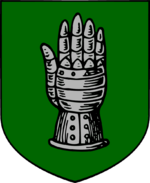Viric Merrick: Difference between revisions
No edit summary |
No edit summary |
||
| (10 intermediate revisions by 2 users not shown) | |||
| Line 1: | Line 1: | ||
{{N&H article}} | |||
{{Hurmu Senator | |||
|fullname = | |||
|image = 1727 Viric Merrick.png | |||
|image-2 = House of Merrick CoA.png | |||
|Tenurebegins = 12.VIII.{{AN|1729}} ({{AgeAN|1729}}) | |||
|Tenureends = | |||
|positions = | |||
|senate = [[Twelfth Senate|XII]], [[Thirteenth Senate|XIII]] | |||
|elected = | |||
|faction = [[Humanist List|Humanist]] | |||
|OHLline = | |||
|comment = | |||
|gender = Male | |||
|Race = | |||
|species = Human | |||
|hairstyle = | |||
|eyecolour = | |||
|skincolour = | |||
|other = | |||
|father = | |||
|mother = [[Isabella Merrick I "Genitrix"]] <br> Sandra Ása Stefánsson | |||
|spouse = [[Azardokht Boragchin Erdenechuluuniin al-Osman]] | |||
|children = | |||
|birthdate = {{AN|1679}} (aged {{AgeAN|1679}}) | |||
|birthplace = | |||
|deathdate = | |||
|deathplace = | |||
|}} | |||
'''{{PAGENAME}}''', born 1679 ({{AgeAN|1679|}} old). Viceroy of [[Transprinitica]] for the [[Order of the Holy Lakes]]. | '''{{PAGENAME}}''', born 1679 ({{AgeAN|1679|}} old). Viceroy of [[Transprinitica]] for the [[Order of the Holy Lakes]]. | ||
==Biography== | ==Biography== | ||
The service career of Viric Merrick began with his participation as a volunteer in [[Operation Tianhu]], where he was promoted to Superintendent Inspector of the Peace in the [[Hurmu Peace Corps]] and subsequently designated as Deputy Commissioner of [[Transprinitica]] (1702–1706). Usurped the post of Commissioner from his predecessor during the [[Great Vanic Revolt]], and held it for four years (1706–1710). After the [[1710 Hurmu government crisis]] Viric Merrick was subordinated to his kinswoman [[Isabella III Güntherdohtor Merrick]] who was appointed as Minister for the Transprinitica District in the sixth cabinet of Daniyal al-Osman. Returned to Transprinitica as Minister (1716–1718) during the [[Cabinet of Patrik Djupvik]], following the [[1716–1717 Hurmu political crisis]], and subsequently during the [[Cabinet of Jamshid-e Osman]]. An ally of the [[Benacian Union]], he had received the rank of legate and command of the [[Benacian Union Defence Force]] contingent garrisoned in Transprinitica | |||
Born to [[Isabella Merrick I "Genitrix"]] in [[Merensk]], via surrogates under the auspices of the [[N&H Future Leadership Programme]]. Received his formal education and indoctrination in [[Raspur]], where he attended the [[Education & Indoctrination Service of Raspur/Sarayzenana|Sarayzenana, Saraymardana, and the Dabirestân-e Andarûn]] from his infancy until the age of sixteen. | |||
In common with many of his background and heritage, he was sent to [[Hurmu]] to commence the foundation of his [[Humanist]] career in public administration. | |||
The service career of Viric Merrick began with his participation as a volunteer in [[Operation Tianhu]], where he was promoted to Superintendent Inspector of the Peace in the [[Hurmu Peace Corps]] and subsequently designated as Deputy Commissioner of [[Transprinitica]] (1702–1706). Usurped the post of Commissioner from his predecessor during the [[Great Vanic Revolt]], and held it for four years (1706–1710). After the [[1710 Hurmu government crisis]] Viric Merrick was subordinated to his kinswoman [[Isabella III Güntherdohtor Merrick]] who was appointed as Minister for the Transprinitica District in the sixth cabinet of Daniyal al-Osman. Returned to Transprinitica as Minister (1716–1718) during the [[Cabinet of Patrik Djupvik]], following the [[1716–1717 Hurmu political crisis]], and subsequently during the [[Cabinet of Jamshid-e Osman]]. An ally of the [[Benacian Union]], he had received the rank of legate and command of the [[Benacian Union Defence Force]] contingent garrisoned in Transprinitica from 1706 to 1731, namely the ''15 Kavallerifördelningen "Angularis"''. During the [[1719–1720 Hurmu civil conflict]], Viric would utilise the Benacian forces at his disposal to [[1719 Battle of Tyrador|expel]] the [[Green Turbans (Hurmu)|Green Turbans]] from [[Tyrador]]. With Tyrador secure, he would go on to form [[Panzerkampfgruppe Merrick]] from BUDF and HPC contingents for the purpose of clearing supporters of the [[Assembly of Representatives]] from the western regions of [[Apollonian Hurmu]]. Participated in the reconquest of Transprinitica and the [[Coria|North Corian]] campaign, which successfully concluded with the disbandment of the temporary formation at [[Mitrovska]] on 26.XV.1720. Rewarded in victory by recognition of his rule as Viceroy of Transprinitica (1720– ). | |||
At the direction of the N&H Future Leadership Programme he attended upon their facilities in Raspur in early 1727 before returning to Tyrador. Matched to [[Azardokht Boragchin Erdenechuluuniin al-Osman]], daughter of the First Secretary of Hurmu, owing to political considerations regarding the stabilisation of [[Apollonian Hurmu]] in the aftermath of the [[1719–1720 Hurmu civil conflict]], with the formal matrimonial contracts being inked in the sixth month of {{AN|1727}}. | |||
[[Category:People]]{{Hurmu article}} | [[Category:People]]{{Hurmu article}} | ||
[[Category:Transprinitica]] | [[Category:Transprinitica]] | ||
Latest revision as of 15:55, 27 June 2024
 | |
| Senator of the Lakes | |
|---|---|
 | |
| Tenure began | 12.VIII.1729 AN (9 AN years) |
| Senate(s) | XII, XIII |
| Faction | Humanist |
| Physical description | |
| Gender | Male |
| Species | Human |
| Biographical information | |
| Mother |
Isabella Merrick I "Genitrix" Sandra Ása Stefánsson |
| Spouse(s) | Azardokht Boragchin Erdenechuluuniin al-Osman |
| Date of birth | 1679 AN (aged 59 AN years) |
Viric Merrick, born 1679 (59 AN years old). Viceroy of Transprinitica for the Order of the Holy Lakes.
Biography
Born to Isabella Merrick I "Genitrix" in Merensk, via surrogates under the auspices of the N&H Future Leadership Programme. Received his formal education and indoctrination in Raspur, where he attended the Sarayzenana, Saraymardana, and the Dabirestân-e Andarûn from his infancy until the age of sixteen.
In common with many of his background and heritage, he was sent to Hurmu to commence the foundation of his Humanist career in public administration.
The service career of Viric Merrick began with his participation as a volunteer in Operation Tianhu, where he was promoted to Superintendent Inspector of the Peace in the Hurmu Peace Corps and subsequently designated as Deputy Commissioner of Transprinitica (1702–1706). Usurped the post of Commissioner from his predecessor during the Great Vanic Revolt, and held it for four years (1706–1710). After the 1710 Hurmu government crisis Viric Merrick was subordinated to his kinswoman Isabella III Güntherdohtor Merrick who was appointed as Minister for the Transprinitica District in the sixth cabinet of Daniyal al-Osman. Returned to Transprinitica as Minister (1716–1718) during the Cabinet of Patrik Djupvik, following the 1716–1717 Hurmu political crisis, and subsequently during the Cabinet of Jamshid-e Osman. An ally of the Benacian Union, he had received the rank of legate and command of the Benacian Union Defence Force contingent garrisoned in Transprinitica from 1706 to 1731, namely the 15 Kavallerifördelningen "Angularis". During the 1719–1720 Hurmu civil conflict, Viric would utilise the Benacian forces at his disposal to expel the Green Turbans from Tyrador. With Tyrador secure, he would go on to form Panzerkampfgruppe Merrick from BUDF and HPC contingents for the purpose of clearing supporters of the Assembly of Representatives from the western regions of Apollonian Hurmu. Participated in the reconquest of Transprinitica and the North Corian campaign, which successfully concluded with the disbandment of the temporary formation at Mitrovska on 26.XV.1720. Rewarded in victory by recognition of his rule as Viceroy of Transprinitica (1720– ).
At the direction of the N&H Future Leadership Programme he attended upon their facilities in Raspur in early 1727 before returning to Tyrador. Matched to Azardokht Boragchin Erdenechuluuniin al-Osman, daughter of the First Secretary of Hurmu, owing to political considerations regarding the stabilisation of Apollonian Hurmu in the aftermath of the 1719–1720 Hurmu civil conflict, with the formal matrimonial contracts being inked in the sixth month of 1727 AN.